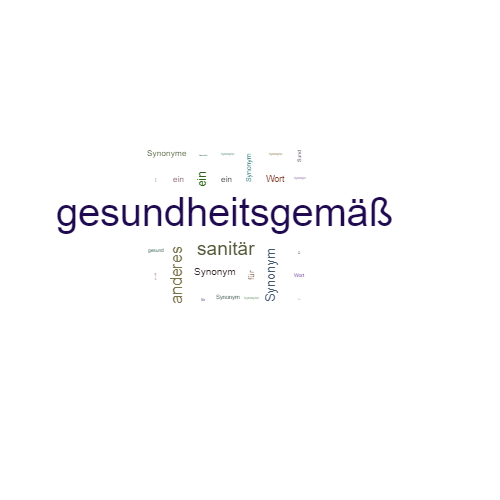

In fact, based on various tallies, Germans are actually the largest single ancestry group in the US. Generally speaking, most of these immigrants assimilated over a few generations, but the German that they often spoke at home, in school, at church or in the community had an effect that’s still audible to this day. This was likely also enhanced by the presence of immigrants who spoke Yiddish, as well as other Germanic languages. That influence may have even been stronger in the US and Canada than in the UK, mainly due to the waves of German immigrants arriving to the “new country” and bringing their language with them.

It has had notable influence from all over the globe, but especially from Greek, Latin, French and German. That’s a good question-forgive me if I go off on a bit of a spiel here.įirst of all, languages constantly change, and English is no exception. (Download) Why Are There German Words in English?
#Gesundheit meaning pdf
This blog post is available as a convenient and portable PDF that youĬlick here to get a copy. If you speak English, then there are likely many German words in your daily speech that you may not have even known came from German.īoth languages have borrowed liberally from each other to form their own vocabulary, and today we’ll talk about some of the most common, interesting, useful and odd German words in use in English.īut first, let’s take a moment to think about why we even have these words in the first place. However, the truth is actually quite different. So maybe English speakers can be excused if they think that English and German are on completely separate paths that don’t overlap. If you noticed that I’m trying to use a four-year-old song whose title literally means “s**t” as a relatively positive example, then you can see how the German language is perceived by many people who speak other languages. That perception is doubtless due in no small part to countless World War II movies where the Germans are the bad guys constantly shouting things like Schnell! Schnell! (“Quickly! Quickly!”) and Heil Hitler! (literally “Hail Hitler!” but figuratively “I’m this movie’s terrible Nazi villain!”).Įven today, one of the most recent prominent examples of “German” in English is Lady Gaga’s 2011 song “Scheiße,” a surprisingly catchy tune in which she claims that although she doesn’t speak German, she will nevertheless do so if we’d like, and then proceeds to sing several verses of German-sounding gibberish. People often say it sounds “guttural” or “rough,” or that German speakers are “always shouting.” You may have noticed that the German language often gets a bad rap. Ap33 Uber-cool Words Used in English That Are Originally German


 0 kommentar(er)
0 kommentar(er)
